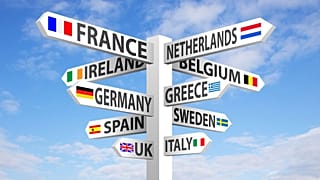By Éanna Kelly
Is your boss demanding you come into the office more often? As companies issue return-to-office orders, some workers are trying a new workaround called “coffee badging”.
With most companies telling workers to show up at least some of the week — and some companies even weighing a return to a blanket five-day office mandate — employees are getting crafty with how long they actually stay there.
Coffee badging is a way for employees to meet their office obligations but spend as little time as possible there. Here’s how it works: employees come to work to have a quick catch-up and a coffee. When they feel they’ve earned their imaginary attendance badge, they leave. Being seen is the aim of the game.
3 top jobs hiring in Europe this week
- Web Business Analyst — BIOMERIEUX sa, Durham, United Kingdom
- Data Analyst, Harmonie Mutuelle, Lyon 7e, France
- Client Delivery Lead, Octopus Energy Group, Paris, France
The concept was popularised by video conferencing company Owl Labs, which found that more than half (58 per cent) of hybrid workers admit to the practice. The 2023 study surveyed 2,000 full-time workers in the United States.
It found that men were more likely to show up and leave early (62 per cent) than women (38 per cent).
Millennials are the most likely generation to do this, followed by Gen Xers, then Gen Zers, and finally baby boomers.
Why coffee badging has risen
The rise of coffee badging and other workplace lingo is more than a series of astute observations of today's workplace: these trends capture employees who are trying to preserve the flexibility they suddenly gained during the COVID-19 pandemic.
Distinct from quiet quitting, loud quitting or phoning it in at home, coffee badging is a form of presenteeism from hybrid workers who don’t love being ordered to come into the office on set days of the week.
Since the tectonic shift of the pandemic, workers have become much more choosy about how they spend their time. They have become aware that long commutes are hours they can never get back.
But now employees risk losing some — or all — of this power, as companies such as Barclays reportedly weigh a return to full-time office mandates.
Coffee badging is also practised by employees who feel too busy for spontaneous office chit-chat. People feel less inclined to Facetime with colleagues when they’re overwhelmed; every meeting is more guilty time spent away from that report you desperately need to finish.
Mixing remote and office work has left many employees feeling less connected to their jobs. Employees also report feeling exhausted and tapped out by the office. Only 31 per cent of workers under the age of 35 said they were thriving at work last year, according to a new annual report on the global workforce from analytics firm Gallup.
Moreover, the proliferation of new work tools is adding strain. We flick between different apps and websites hundreds of times each day. This “toggling tax”, as it’s been called — better known among psychologists as “context switching” — is making it hard to focus and, over time, stresses us out.
Working from home during the pandemic also gave workers new expectations around time optimisation: it quickly became obvious that people could be productive without trekking to an office.
What’s more, podcast after podcast celebrating the near-mystical potential of the optimisation mindset has only raised ambitions around mastering schedules higher.
How employers are responding
But spare a thought, too, for the employer paying hefty rent on a half-empty office. Low occupancy and fragmented attendance are major causes of company downscaling.
Leaders who catch on to the coffee badger could simply command this person to return full-time to their desks.
But there are other options leaders can explore. What about an occasional Friday off to help employees de-stress? Some workplaces are trialling this idea.
Others are doing a spot of “office peacocking”, which involves making the workplace feel extra nice — think stocked kitchens and plush couches — to entice workers to stick around longer.
3 European jobs to discover
- Content Writer, ICF, Brussels
- HIGH TECH First Line Support Engineer, Raith GmbH, Best
- Senior Full Stack Developer (m/f/d) Engineering Manager, IU Internationale Hochschule, Berlin
Ironically, more coffee could be what’s needed: according to one study last year, good quality beverages were the perks most likely to tempt workers back to the office.
Corporate leaders will probably feel justified to claim that the coffee badging employee isn’t engaged enough in their job. And if you are coffee badging it through the week, it’s true that you might not be in a job you love or in one that provides you with a sense of belonging.
Good bosses, however, can make sure that time spent in the office is energising and meaningful rather than a slog.
Perhaps fewer meetings and video calls are the way to go. Or how about this for a novel idea: what about longer deadlines so that employees don’t feel their time is so scarce?







